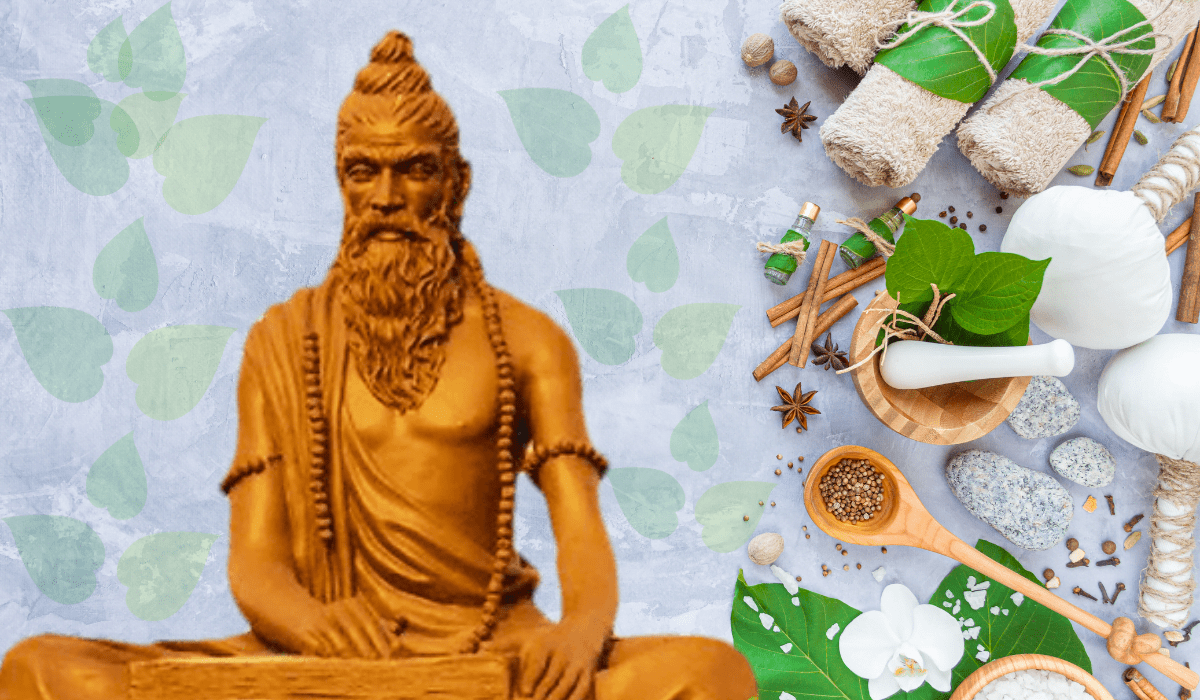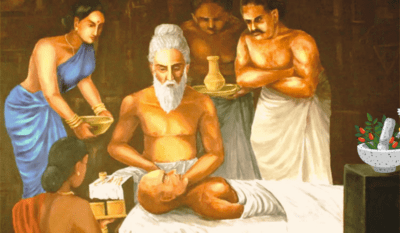Who is The Father of Ayurveda – Exploring the Origins of Ayurveda

In the realm of holistic healthcare, Ayurveda stands out as an ancient and profound system that has shaped wellness practices for centuries. Who is the Father of Ayurveda? Ayurveda is not just a healing system; it’s a way of life that harmonizes the body, mind, and spirit. In this exploration, we delve into the origins of Ayurveda, shedding light on the pivotal figure often hailed as the “Father of Ayurveda.”
Introduction
Ayurveda, a Sanskrit term translating to “knowledge of life,” is an ancient Indian system of medicine that dates back thousands of years. Rooted in the Vedas, Ayurveda emphasizes the interconnectedness of all elements and the importance of maintaining balance for optimal health.
Historical Context
Ancient roots of Ayurveda
Ayurveda’s origins can be traced to the Vedic period, with sacred texts like the Rigveda containing hymns dedicated to healing practices. The knowledge was further organized into systematic principles in texts like Charaka Samhita and Sushruta Samhita.
Key figures in the development of Ayurveda
Throughout history, sages and scholars have contributed to Ayurveda’s evolution. The likes of Charaka, Sushruta, and Vagbhata played pivotal roles in shaping the principles and practices that define Ayurveda.
May You Like This – How to Lower the Blood Sugar Level?
The Father of Ayurveda
Identification of the “Father of Ayurveda”
Among the luminaries, one figure shines brightly as the “Father of Ayurveda” — Maharishi Charaka. His work, Charaka Samhita, is a cornerstone of Ayurvedic knowledge, outlining diagnostic methods, treatments, and ethical guidelines.
Contributions and teachings
Maharishi Charaka’s contributions extend beyond the physical realm. His teachings emphasize the holistic nature of health, considering mental, emotional, and spiritual well-being integral to one’s overall state of health.
Origins of Ayurvedic Principles

Fundamental concepts of Ayurveda
Ayurveda revolves around the concept of doshas — Vata, Pitta, and Kapha — representing the body’s bioenergetic forces. Understanding and balancing these doshas are central to Ayurvedic diagnosis and treatment.
Influence on modern healthcare practices
While Ayurveda originated in ancient times, its principles continue to influence modern medicine. Concepts such as personalized medicine and the mind-body connection resonate with Ayurvedic ideals.
Ayurveda Today
Continued relevance in the contemporary world
Despite the advancements in medical science, Ayurveda remains relevant, offering holistic solutions for chronic conditions and promoting preventive healthcare.
Global adoption and integration
Ayurveda’s popularity has transcended cultural boundaries, with people worldwide embracing its principles for a healthier lifestyle.
Key Ayurvedic Concepts
Doshas: The foundation of Ayurvedic philosophy
Understanding one’s dominant dosha helps tailor lifestyle choices, including diet and exercise, for optimal well-being.
Importance of balance and harmony
Ayurveda underscores the significance of balance in all aspects of life, promoting harmony within oneself and with the surrounding environment.
Ayurvedic Practices
Herbal remedies
Ayurvedic pharmacology harnesses the healing properties of various herbs, roots, and minerals, offering natural alternatives for various health conditions.

Dietary guidelines
Ayurveda prescribes personalized diets based on one’s dosha, recognizing the impact of food on individual constitution and health.
Ayurveda vs. Modern Medicine
Points of convergence
While Ayurveda and modern medicine differ in their approaches, there are areas of convergence, such as recognizing the importance of a holistic approach to health.
Points of divergence
Divergences arise in their understanding of disease causation and the emphasis on natural remedies in Ayurveda.
Ayurvedic Criticism and Controversies
Skepticism and challenges
Critics often question Ayurveda’s scientific validity, citing the lack of rigorous empirical evidence.
Responses from Ayurvedic practitioners
Ayurvedic practitioners argue for a more holistic understanding of health, incorporating both traditional wisdom and scientific advancements.
Ayurveda and Personalized Wellness
Tailoring treatments to individual needs
Ayurveda’s strength lies in its ability to customize treatments, recognizing that each person is unique and requires a personalized approach to healthcare.

A holistic approach to mind, body, and spirit
Beyond physical health, Ayurveda addresses mental and spiritual aspects, fostering a comprehensive sense of well-being.
Ayurveda in Popular Culture
Influence on alternative medicine trends
Ayurveda’s influence extends beyond medicine, shaping broader trends in alternative and holistic health practices.
Ayurvedic products and services in the market
The market boasts a plethora of Ayurvedic products, from skincare to dietary supplements, reflecting the system’s widespread acceptance.
Integrating Ayurveda into Daily Life
Practical tips for incorporating Ayurvedic principles
Simple lifestyle changes, like mindful eating and daily rituals, can integrate Ayurvedic principles into one’s daily routine.
Benefits of a holistic lifestyle
Embracing Ayurveda goes beyond treating ailments; it fosters a holistic lifestyle, promoting long-term well-being.
Scientific Studies on Ayurveda
Research validating Ayurvedic practices
Scientific studies increasingly validate Ayurvedic principles, acknowledging their efficacy in managing certain health conditions.

Ongoing studies and future prospects
Ongoing research promises to uncover more about Ayurveda’s mechanisms, potentially bridging the gap between traditional and modern medicine.
Ayurveda’s Global Impact
International recognition and acceptance
Ayurveda has gained recognition globally, with many seeking its benefits and integrating its practices into mainstream healthcare.
Collaborations with modern medicine
Collaborations between Ayurvedic and allopathic practitioners offer integrated healthcare solutions, combining the strengths of both systems.
Conclusion
In unraveling the origins of Ayurveda and acknowledging Maharishi Charaka as the “Father of Ayurveda,” we find not just a historical figure but a guiding light for holistic well-being. Ayurveda’s enduring legacy and its integration into modern life speak volumes about its timeless wisdom.
FAQs
Is Ayurveda only for treating illnesses, or can it be adopted for preventive healthcare?
Ayurveda emphasizes preventive healthcare, guiding individuals in maintaining balance to prevent illnesses.
Are Ayurvedic practices compatible with modern medical treatments?
Yes, Ayurvedic practices can complement modern medical treatments, offering a holistic approach to health.
Can anyone follow Ayurvedic principles, regardless of their cultural background?
Ayurveda is universal and can be embraced by individuals of any cultural background for improved well-being.
How can one determine their dominant dosha for personalized Ayurvedic guidance?
Ayurvedic practitioners use various methods, including questionnaires and pulse diagnosis, to identify an individual’s dominant dosha.
Are Ayurvedic herbal remedies backed by scientific research?
Many Ayurvedic herbs have undergone scientific studies, showing promising results in various health conditions.












